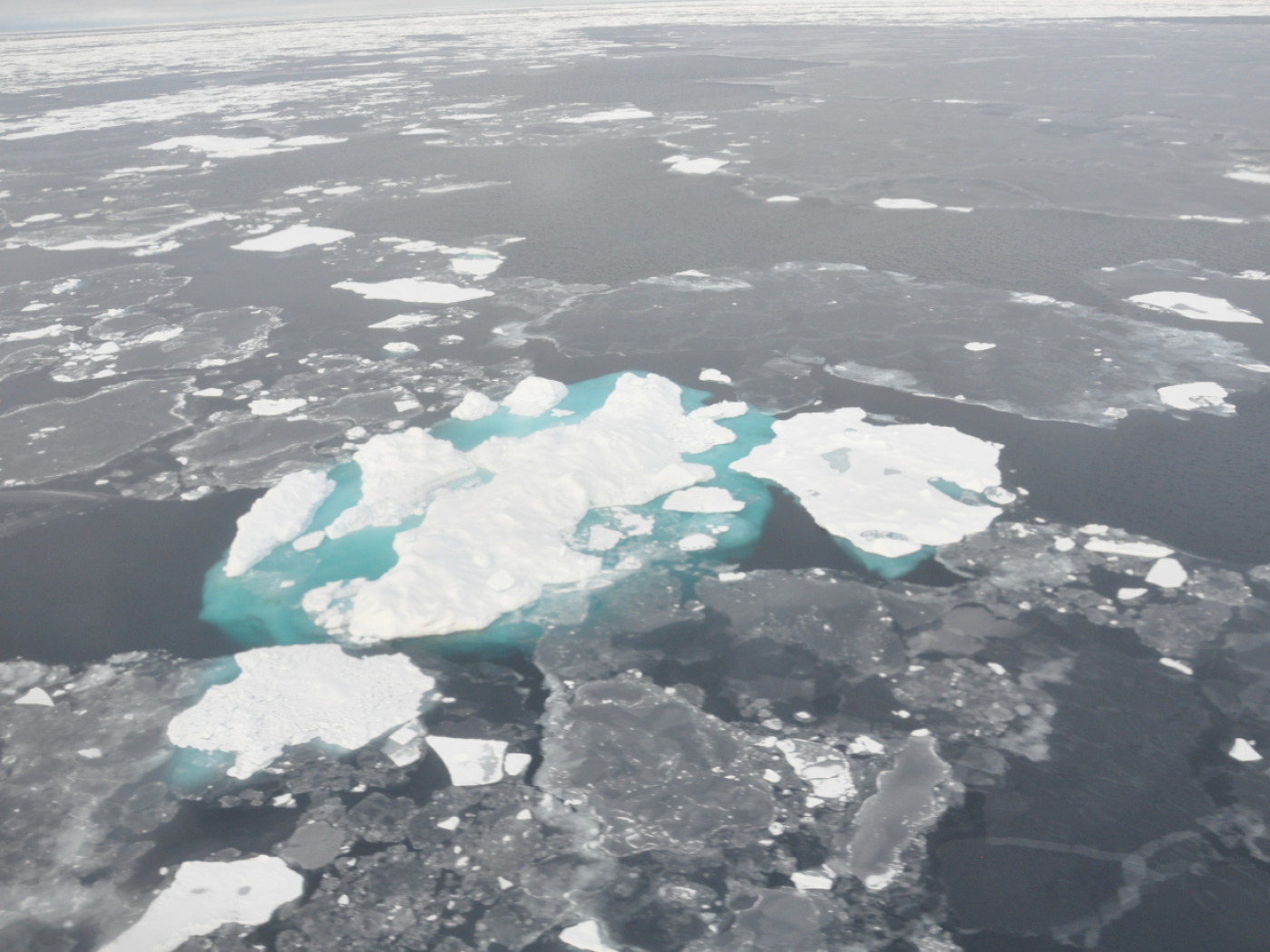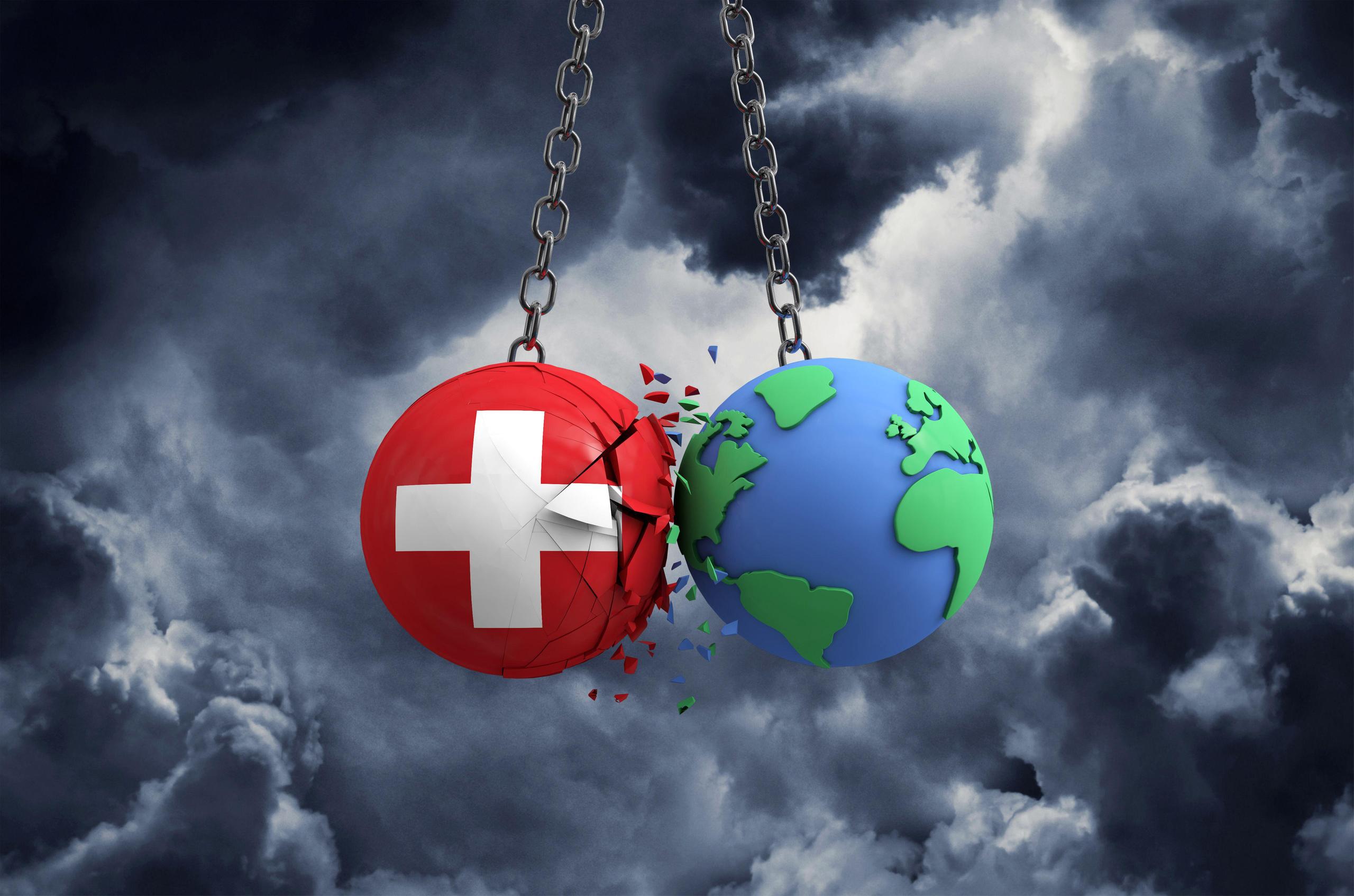
Climate change ‘results in longer days’: Swiss research

Climate change is making the days on Earth slightly longer, according to Swiss research. Melting polar ice discharging into the oceans is changing the distribution of mass across the planet, which is slowing down the Earth's rotation.
Check out our selection of newsletters. Subscribe here.
This is reported by a research team led by Mostafa Kiani Shahvandi from the Federal Institute of Technology Zurich (ETH) in the journal Proceedings of the US National Academy of Sciences.
+ Swiss climate policy violates human rights: court verdict
According to the study, the climate-related effect on day length is currently around 1.33 milliseconds per century. If climate change is not curbed, the effect could become greater than the influence of the moon on the Earth’s rotation, the group explains. This effect of the moon is currently 2.40 milliseconds per century.
Tugging at the planet
The moon’s gravity creates tidal forces on the earth, which are mainly visible in the ebb and flow of the tides. The “tugging” of the moon on the earth minimally slows down the earth’s rotation and thus lengthens the day.
The climate also has a tiny influence on the Earth’s rotation, which can be measured using modern satellites. In addition to satellite data, Shahvandi and his team used computer models to determine the influence of climate for the period since 1900 and to forecast the period up to 2100.

More
Switzerland’s ‘disappointing’ contribution to an emissions-free planet
For the first two decades of the 21st century, the researchers calculated an average climate-induced increase in day length of 1.33 milliseconds per century. Between 1960 and 1980, the climate-related increase in day length was 0.32 milliseconds, between 1920 and 1940 it was 1.00 milliseconds. This increase therefore fluctuated considerably over the course of the 20th century.
“These fluctuations reflect the variable contributions of global surface temperature change, ice melt, terrestrial water storage change and sea level rise that occurred during the 20th century,” the authors write.
Effects speeding up
The figures also show that mass transport from the poles to the equator as a result of climate change has been unprecedented in the last two decades compared to the previous 100 years.
More
The researchers also took into account an effect that counteracts the displacement of water masses in the course of the ice melt: mass displacements in the Earth’s mantle. Kilometre-thick ice pushes the land masses of Greenland and Antarctica into the viscous part of the Earth’s mantle on which the Earth’s plates move.
When the ice melts, the land masses become lighter and rise because viscous earth mantle mass flows underneath. According to calculations, the effect is currently minus 0.8 milliseconds per century, i.e. shortening the length of the day.
Climate crisis trumps the moon?
In the forecast for the year 2100, Shahvandi’s team used a favorable scenario with a sharp decline in greenhouse gas emissions: This entailed hardly any changes in climate-related day length. The RCP8.5 scenario was different: if a further increase in greenhouse gas emissions heats up the climate and the polar ice caps melt more and more, this results in a climate-induced lengthening of the day by 2.62 milliseconds per century.
Translated from German by DeepL/mga
This news story has been written and carefully fact-checked by an external editorial team. At SWI swissinfo.ch we select the most relevant news for an international audience and use automatic translation tools such as DeepL to translate it into English. Providing you with automatically translated news gives us the time to write more in-depth articles.
If you want to know more about how we work, have a look here, if you want to learn more about how we use technology, click here, and if you have feedback on this news story please write to english@swissinfo.ch.

In compliance with the JTI standards
More: SWI swissinfo.ch certified by the Journalism Trust Initiative





























You can find an overview of ongoing debates with our journalists here . Please join us!
If you want to start a conversation about a topic raised in this article or want to report factual errors, email us at english@swissinfo.ch.